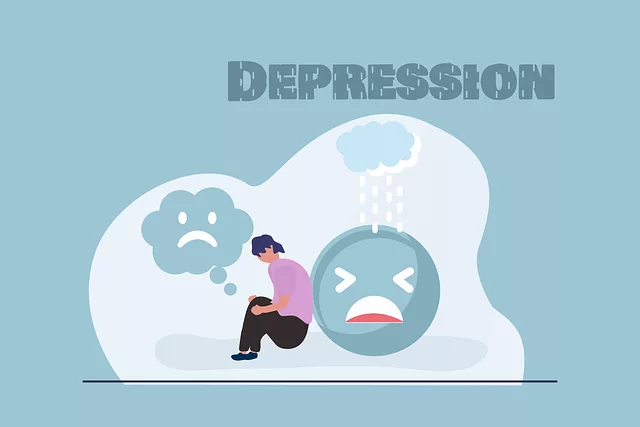Public awareness campaigns using diverse media like social media, community events, and public service announcements significantly promote mental health education, reduce stigma, and cater to diverse communities' needs. Organizations like Kaiser Permanente Psychiatry in Parker offer crucial resources through initiatives like the dedicated phone line, addressing burnout prevention and stress reduction. Their programs include mindfulness practices and tailored Mental Health Education, fostering open dialogue and destigmatizing conversations. A recent campaign humanized mental health struggles through relatable storytelling, empowering adolescents with accessible resources and strategies, as demonstrated by Kaiser Permanente's successful evaluation metrics.
Public awareness campaigns play a pivotal role in promoting mental health, shaping societal perceptions, and reducing stigma. This article delves into the development of such campaigns, highlighting their impact on various aspects of mental wellness. We explore strategies employed by organizations like Kaiser Permanente Psychiatry, which strive to enhance community access to mental health services through innovative initiatives. A case study featuring Parker’s journey underscores effective campaign techniques tailored for youth mental health. Additionally, practical tips are offered for creating engaging content, while the importance of evaluation metrics is emphasized to assess campaign success, particularly focusing on the Kaiser Permanente psychiatry phone number as a key resource.
- Understanding Public Awareness: The Role of Campaigns in Mental Health Promotion
- Kaiser Permanente Psychiatry: Unlocking Access and Support for Community Mental Health
- Parker's Story: A Case Study on Effective Campaign Strategies for Youth Mental Health
- Designing Engaging Content: Tips for Creating Impactful Public Awareness Materials
- Measuring Success: Evaluating the Effectiveness of Public Mental Health Campaigns
Understanding Public Awareness: The Role of Campaigns in Mental Health Promotion

Public awareness campaigns play a pivotal role in promoting mental health and reducing the stigma associated with seeking help. These initiatives are essential tools to educate communities about various aspects of mental well-being, including early detection, treatment options, and self-care strategies. By leveraging different mediums such as social media, community events, and public service announcements, campaigns can effectively reach a wide audience.
For instance, organizations like Kaiser Permanente Psychiatry, with their dedicated phone lines (e.g., Parker), offer valuable resources for individuals seeking mental health support. These campaigns also foster cultural sensitivity in mental healthcare practice by addressing diverse communities’ unique needs and challenges. By promoting Burnout Prevention and Stress Reduction Methods, they empower people to take proactive measures for their mental health, ultimately contributing to a more supportive and informed society.
Kaiser Permanente Psychiatry: Unlocking Access and Support for Community Mental Health

Kaiser Permanente Psychiatry offers a beacon of hope and support for individuals seeking mental health services in Parker and beyond. This healthcare organization recognizes the growing need for accessible and comprehensive psychiatric care, especially in communities where such resources may be scarce. By providing a dedicated line, often easily accessible through a simple search for “Kaiser Permanente psychiatry phone number Parker,” they ensure that help is just a call away.
Their approach to community mental health goes beyond traditional therapy sessions. They incorporate innovative strategies like Mindfulness Meditation and Self-Awareness Exercises into their programs, empowering individuals with tools to manage stress and improve overall well-being. Additionally, Kaiser Permanente Psychiatry designs Mental Health Education Programs tailored to meet the unique needs of diverse populations, fostering a culture of open dialogue and destigmatizing mental health conversations.
Parker's Story: A Case Study on Effective Campaign Strategies for Youth Mental Health

In a world where mental health challenges are increasingly prevalent among youth, Parker’s story serves as an inspiring case study showcasing effective campaign strategies. Initiated by Kaiser Permanente, this initiative aimed to raise awareness and reduce stigma surrounding mental health issues amongst adolescents. The campaign focused on educating young people about mood management techniques and burnout prevention strategies for healthcare providers, highlighting the importance of early intervention and support.
Through a multi-faceted approach, including social media campaigns, community events, and partnerships with local schools, Kaiser Permanente successfully engaged youth and their families. By sharing Parker’s journey—a young individual who struggled with anxiety but found support and coping mechanisms through professional help—the campaign humanized mental health issues. This strategy encouraged open conversations about stress reduction methods and fostered a sense of understanding and empathy within the community. The integration of real-life stories, coupled with accessible resources and expert advice, proved instrumental in empowering young people to take charge of their mental well-being.
Designing Engaging Content: Tips for Creating Impactful Public Awareness Materials

Designing engaging content is key to creating impactful public awareness materials. When crafting messages, it’s essential to tell compelling stories that resonate with your audience. Incorporate real-life examples and personal narratives to make the information relatable and memorable. Use vivid imagery, infographics, or videos to illustrate complex concepts, ensuring they align with the core message. For instance, when raising awareness about mental health, sharing recovery stories can foster empathy building strategies and encourage individuals to reach out for support.
Remember, public awareness campaigns should aim to educate, inspire, and motivate action. Focus on delivering information in an accessible manner, using language that is easy to understand. Incorporate interactive elements like polls or quizzes to boost engagement. Additionally, leveraging the power of social media platforms can help spread your message widely, targeting diverse audiences. For example, sharing tips on inner strength development and self-esteem improvement through regular posts can attract a broader spectrum of individuals seeking support or guidance.
Measuring Success: Evaluating the Effectiveness of Public Mental Health Campaigns

Evaluating the success of public mental health campaigns is an essential step to ensure their effectiveness and impact on communities. It involves measuring how well the campaign reaches its target audience, delivers its message, and fosters behavioral changes related to mental wellness. One effective method is through post-campaign surveys that gauge participants’ knowledge, attitudes, and intentions towards mental health. These assessments can highlight areas of success and identify any gaps or misconceptions that require further attention.
For instance, a study conducted by Kaiser Permanente in Parker, Colorado, focused on raising awareness about emotional healing processes and resilience building within the community. By employing various evaluation techniques, including phone-based interviews, they could assess the campaign’s reach and impact. The results indicated improved mental wellness perceptions among participants, suggesting that such initiatives play a crucial role in promoting open conversations around mental health and encouraging individuals to seek support when needed.
Public awareness campaigns play a pivotal role in mental health promotion, as evidenced by successful initiatives like Kaiser Permanente Psychiatry’s access programs and Parker’s inspiring story. By understanding target audiences and employing engaging content strategies, organizations can effectively reach youth and community members. Measuring campaign success through evaluation ensures continuous improvement, fostering a more supportive and informed society for mental well-being. For support, individuals are encouraged to contact the Kaiser Permanente psychiatry phone number.






